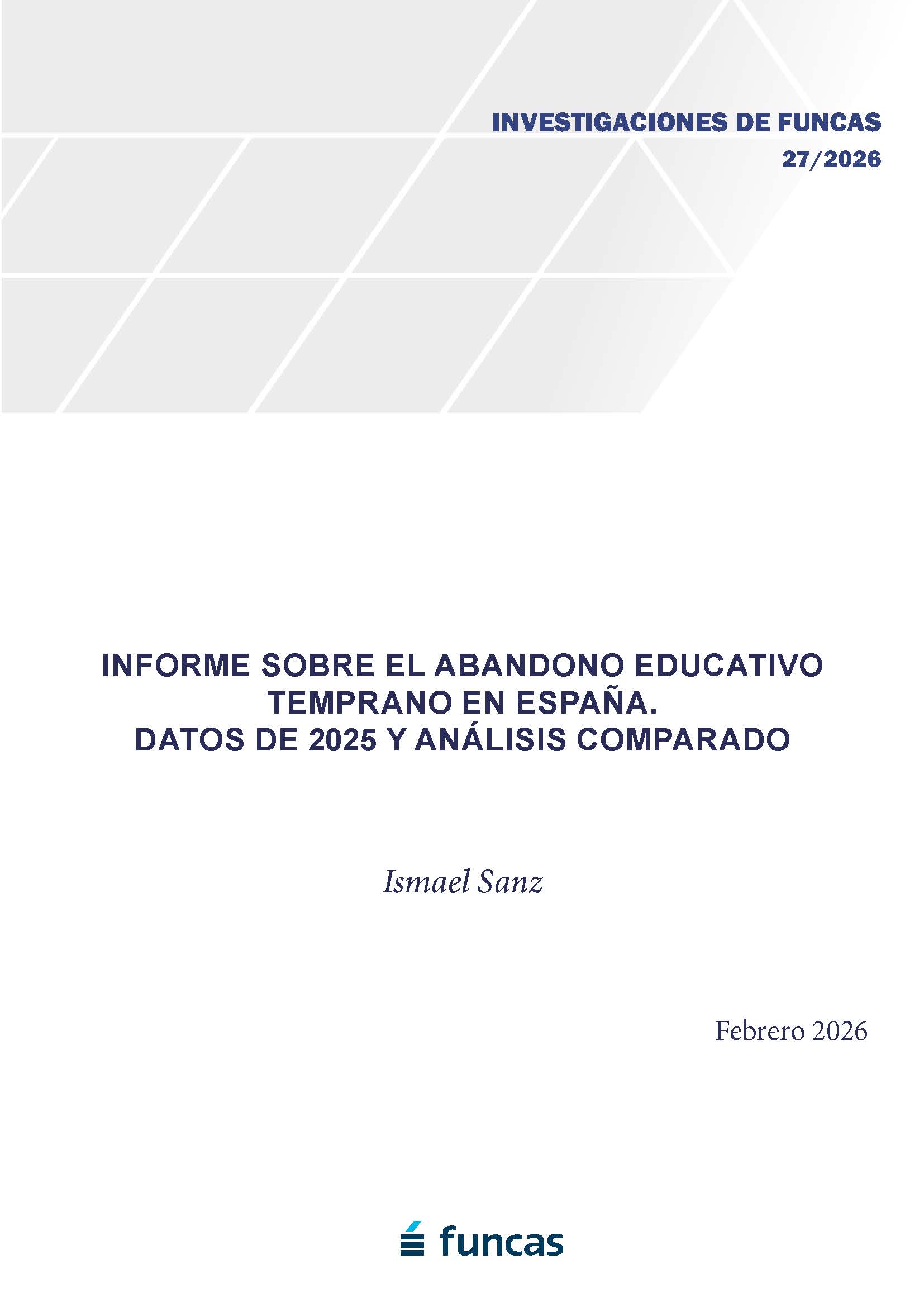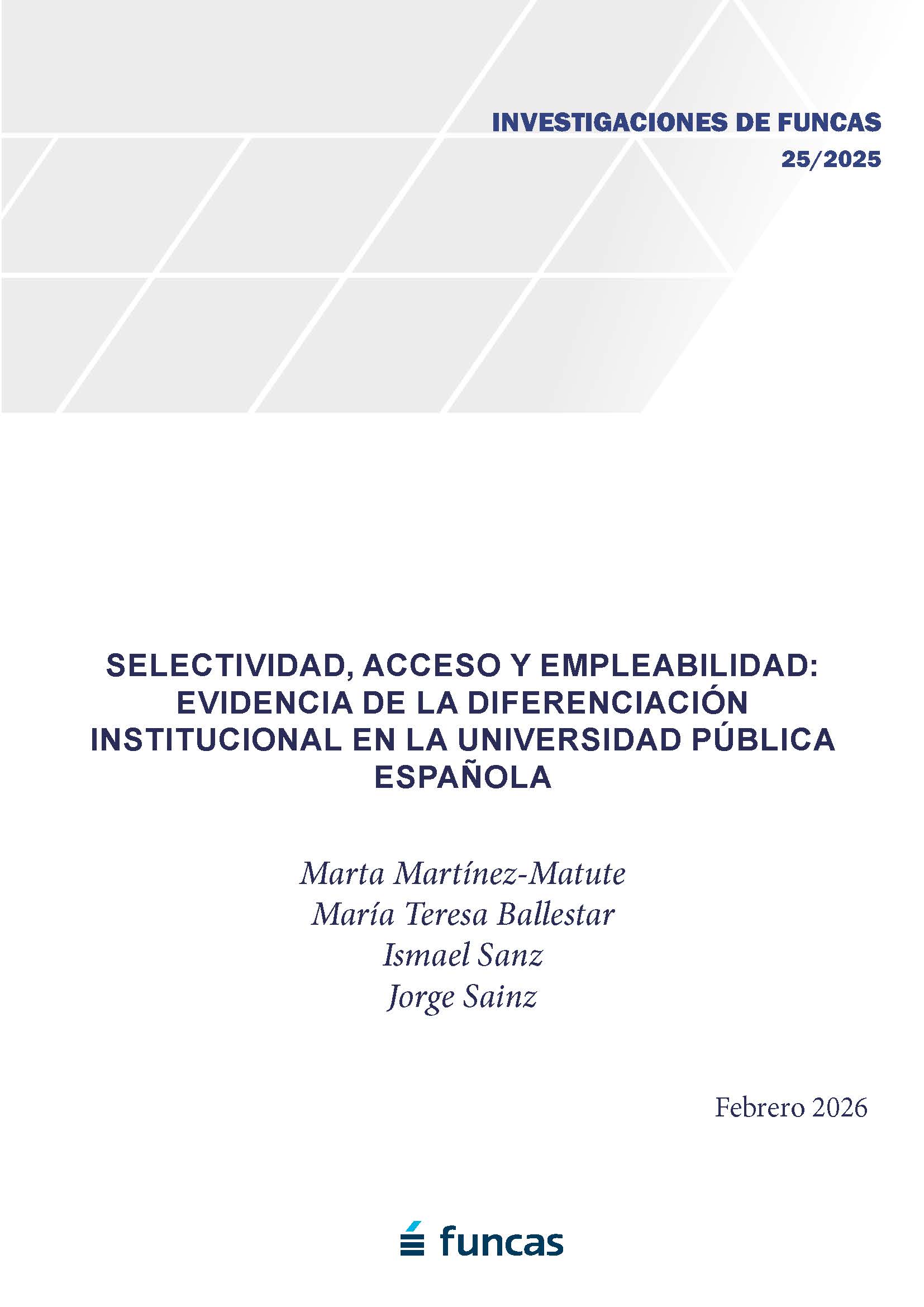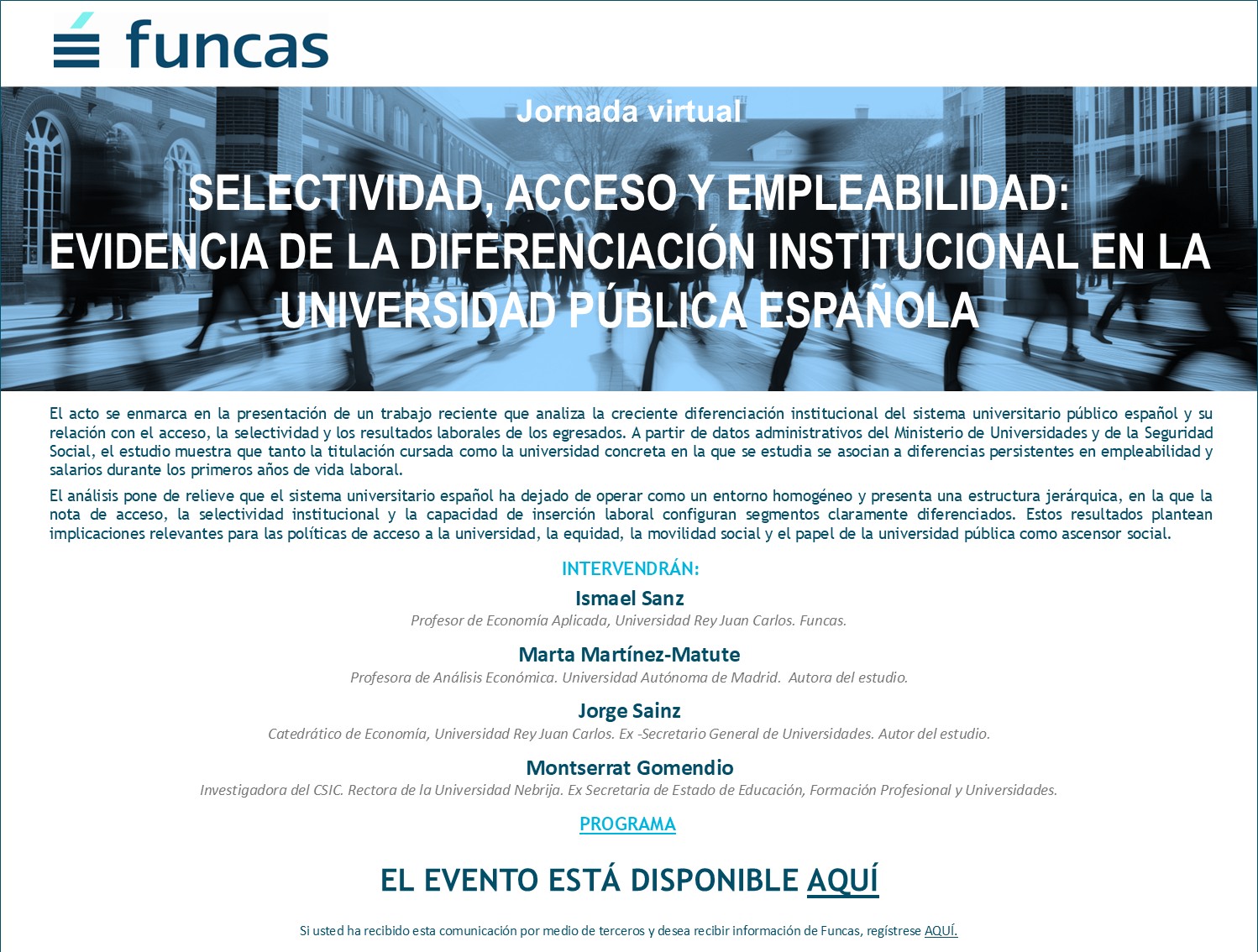Educación
Destacados

Informe sobre el abandono educativo temprano en España. Datos de 2025 y análisis comparado
Fecha:
febrero 2026
El abandono educativo temprano continúa siendo uno de los principales retos del sistema educativo en España. Afecta tanto a las trayectorias de vida de los jóvenes como al desarrollo económico, social y cultural del país. La disminución de esta tasa es una prioridad política para muchos países de la OCDE y la Unión Europea (OCDE, 2023). La Recomendación del Consejo de 28 de junio de 2011 relativa a las políticas para reducir el abandono educativo temprano ya destacaba la importancia de su reducción para alcanzar objetivos clave incluidos en la Estrategia Europa 2020.
Artículo
Generative AI and the future of work and education
Fecha:
febrero 2026
Generative AI is reshaping labour markets primarily by reorganizing tasks within occupations rather than eliminating jobs outright, with uneven effects on wages, employment, and access to entry-level roles. These outcomes depend not only on technical capabilities, but also on human agency, institutional choices, and how education systems adapt to shifting
expertise thresholds.

Selectividad, acceso y empleabilidad: evidencia de la diferenciación institucional en la universidad pública española
Fecha:
febrero 2026
Fecha: febrero 2026
Marta Martínez-Matute, María Teresa Ballestar, Ismael Sanz, Jorge Sainz
Acceso a la universidad, selectividad, diferenciación institucional, empleabilidad, retornos laborales, sistema universitario público.
Este documento analiza la estructura del sistema universitario público español utilizando datos administrativos de la cohorte 2015–2016 y su evolución académica y laboral hasta 2023. Los resultados muestran que la relación entre la nota de acceso y la empleabilidad presenta un patrón claramente diferenciado, tanto a nivel disciplinar como institucional. Las áreas de estudio con mejores resultados laborales presentan, en promedio, mayores niveles de selectividad en el acceso, y las universidades se agrupan en clústeres que combinan distintos perfiles de acceso académico y desempeño en el mercado de trabajo.

